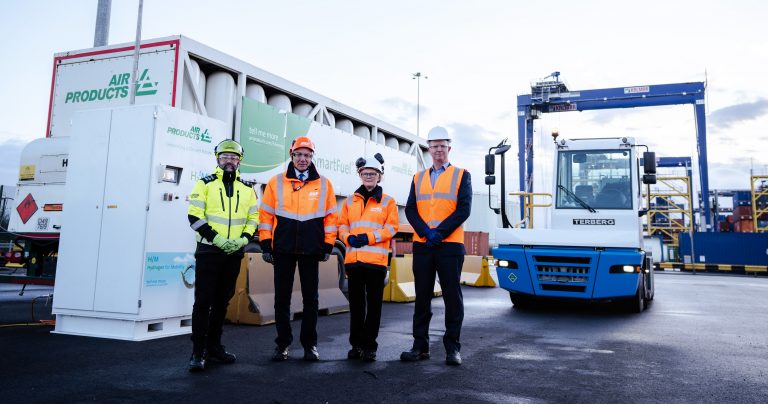Approval recommended for new Skegness hotel
Lincoln window manufacturer shortlisted in six award categories
University of York works with Siemens to explore possibility of sun-powered trains
Farmers to get increased payments for protecting nature and delivering sustainable food production
“By increasing the investment in these schemes, I want farmers to see this stacks up for business – whatever the size of their holding.”
Under the EU’s Common Agricultural Policy, which the UK has now left, farmers received payments based on how much land they held, meaning half the available cash went to the top 10%. Outside the EU, the UK is bringing in a new, fairer farming system which is designed in the best interests of our industry, in partnership with the sector. As the UK works towards its targets of halting the decline of nature by 2030 and hitting net zero by 2050 the new system, which is being phased in by 2027-8, puts money into farmers’ pockets and the wider rural economy based on actions taken to enhance nature and drive innovation in agriculture.Sheffield based PR firm expands into tech sector
Final phase of Louth housing scheme in the pipeline
Streets Chartered Accountants cover tax, employee matters, and more in new news roundup
Telecoms firm signs three-year community partnership deal with The Tigers
Broadband provider KCOM team up with the Tigers to deliver a range of community initiatives supporting grass roots sport and digital inclusion across the region for the next three years.
Neil Bartholomew, KCOM Retail MD, said: “As two of the biggest and most established names in Hull, KCOM and Hull City are part of the fabric of this region and we can achieve great things working together to help improve the lives and opportunities available to people in the local community. “As a business we’re determined that no-one is left behind socially or digitally and our partnership with Hull City will enable us to create many more opportunities – both online and on the pitch – for local people.” Joe Clutterbrook, Chief Commercial Officer at Hull City, said: “We’re thrilled to be extending our relationship with KCOM. We have enjoyed a long and fruitful partnership over the years, with lots of community-focussed initiatives, so we are looking forward to continuing and growing that approach even more over the next three years. “We’d like to thank everyone at KCOM for their support and encourage Hull City fans and KCOM customers to keep an eye out for lots more exciting projects coming up!” Among the joint initiatives included in the partnership is the highly successful KCOM Kits scheme, which has been running for the last three seasons and donates a full Umbro team strip to a local youth football club every time City score a home goal in the league. So far, the scheme has donated more than 100 kits to local youth teams across Hull, East Yorkshire and North Lincolnshire. The partnership, which will run until the end of the 2024/2025 season, will also see 5,000 free match tickets given to children from local schools and charity groups during the 2022/23 season, enabling many to see Hull City to play live for the first time. As part of the agreement, KCOM will host its Safer Internet Day activities and half term coding camps at the MKM Stadium, introducing youngsters to essential programming skills and online safety. Other highlights of the partnership include a KCOM Stars competition which will give one deserving KCOM business customer the chance to meet the players at City’s training ground before being treated to a VIP matchday experience.Hull company gets enhanced standing with business sustainability organisation
Hull-based safety company Arco has been awarded a gold medal by EcoVadis, the world’s largest and most trusted provider of business sustainability ratings.
The gold award sees Arco improve on the silver rating it has held in previous years, with the fifth-generation family business improving its scores in areas like the environment, by improving energy performance reporting and setting of carbon reduction targets, as well as labour and human rights and sustainable procurement. The gold rating puts Arco in the top 5% of the 100,000 plus rated companies assessed by EcoVadis. In addition, Arco was also recognised as an industry leader, overall, by making the top 2% of companies rated by EcoVadis in its industry sector, as well as in the areas of sustainable procurement (top 1%) and environment (top 2%). Jim Harbidge, Head of Sustainability at Arco, said: “As a responsible choice of safety partner, Arco is very proud to have secured a gold medal from EcoVadis and that our efforts to continuously improve in sustainability and ethical performance have been recognised. “As a business, we are always striving to be the best at what we do, to lead in our industry and in the family business sector. “We will continue to take steps to achieve our ambition of being a platinum-rated business in the future, including increasing our alignment to external standards and accreditations, such setting science-based targets, and further improving our reporting to stakeholders.” The EcoVadis methodology framework assesses companies’ policies and actions as well as their published reporting related to the environment, labor and human rights, ethics and sustainable procurement. Its team of international sustainability experts analyse and cross check companies’ data (supporting documents, 360° Watch Findings, etc.) in order to create reliable ratings, taking into account each company’s industry, size and geographic location.Plans approved to explore future management of John Smith’s Stadium
Financial support now available to upgrade South Yorkshire businesses’ vehicles
Financial support to upgrade older vehicles is available for business owners ahead of the Clean Air Zone (CAZ) in February 2023.
- Taxis, including both hackney carriages and private hire vehicles, which are below Euro 6 Diesel or Euro 4 Petrol standards
- Light goods vehicles (LGVS) such as vans, campervans and pickup trucks and minibuses which are below Euro 6 Diesel or Euro 4 Petrol standards
- Buses and coaches which are below Euro 6 Diesel standards
- Heavy goods vehicles (HGVs) which are below Euro 6 Diesel standards
- £10 per day for polluting vans/LGVs and Taxis
- £50 per day for coaches, buses and lorries/HGVs
Kirklees Council’s Cabinet approves plans to move forward in the Station to Stadium Enterprise Corridor
Investment call for housing and net zero projects launched in York and North Yorkshire
Barriers to small firms’ access to finance could hold back UK economic recovery, new report warns
- The Government should reverse direction from its announcement on Research and Development tax credits at the Autumn Statement that will seriously reduce spending on R&D by SMEs in the UK economy.
- The Government should introduce a VAT-based capital investment incentive, to drive up the amount of small business investment in a faster, simpler way, rather than the outgoing big business-friendly super-deduction.
- The British Business Bank should encourage the use of the Bank Referral Scheme, where lenders are required to share details of SMEs they reject for finance, so those businesses can be approached by alternative lenders, and should also expand the number of banks and approved alternative lenders in the scheme.
- The Financial Conduct Authority should reverse its decision to move fees and levies to a regressive flat-fee system, which discourages smaller finance providers from entering or remaining in the market, and ultimately limits the range of finance available to small businesses.
- The Start Up Loans scheme should be expanded from 11,000 to 15,000 loans per year, to encourage more people to give entrepreneurship a shot.
- The Business Banking Resolution Service needs to adequately address outstanding cases and clear its backlog, passing on compensation and delivering value for money. The deadline for historic cases also needs to be extended beyond February 2023.
- All future capital allowances should include second-hand capital purchases, to allow small businesses to offset the cost of upgrading their machinery without the requirement of the asset being new. A piece of equipment could be second-hand, but could still represent a significant upgrade to a small firm, helping them to boost their productivity.
- The Government should announce that the Seed Enterprise Investment Scheme will not be closed down in 2026, to provide greater certainty and longevity to users of the scheme’s investment plans. The investment limit for the scheme should be uprated in line with inflation each year.






















